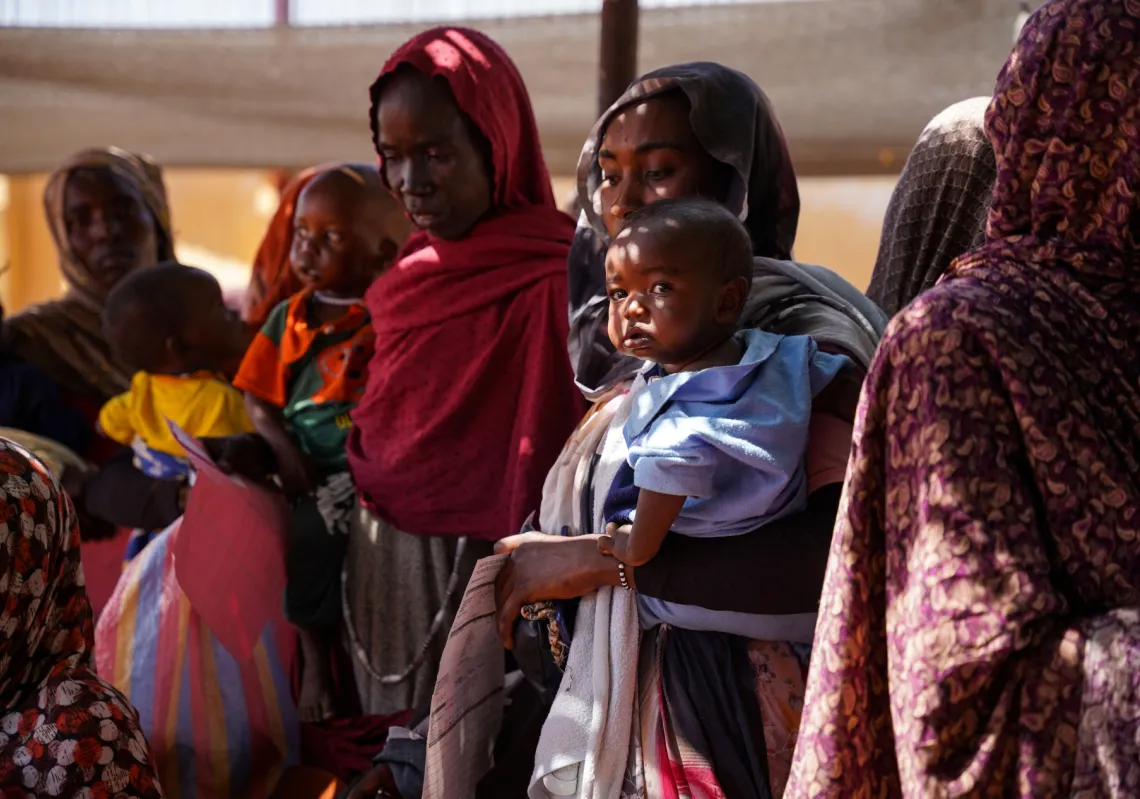Democracy is not a thing of beauty. It is messy, loud, and chaotic. It is always and everywhere imperfect and incomplete. As the elections on June 7 showed, Lebanon’s democracy is no exception. Although Lebanese certainly like to think of themselves as distinctive, and even take a certain pride in the mind-bending complexity of local politics—as if only a true Lebanese could ever really master its mysteries—what happened in Lebanon on June 7 was in fact, an ordinary, everyday experience of democracy, complete with vote buying, intimidation, mudslinging, backroom deals, and last minute betrayals. A local politician from Chicago, New York or New Orleans would have felt right at home.
What the Lebanese elections also demonstrated, however, is that for all its flaws, democracy is a thing of wonder. It generates chaos and noise because the stakes are important and the outcomes uncertain. In no other system, least of all in the Arab world, do citizens, including the poor, the illiterate, the excluded, and the marginal, affect how political power is allocated. In no other system, least of all in the Arab world, are citizens able to hold rulers accountable, however imperfectly and however incompletely, or remove them from office. In these respects, too, Lebanon’s democracy is no exception. On June 7, Lebanese went to the polls in unprecedented numbers. And despite the deep structural flaws in Lebanon’s electoral system, despite a campaign season marked by violations of electoral laws, and despite a constitution that is in many respects deeply undemocratic, forcing citizens to vote not just as Lebanese but as Christians or Muslims, the results were unexpected, unpredicted, and important.
This is not to say that the outcome of the elections was a complete surprise. Nor did they change the fundamental structure of Lebanese politics. On June 8, just as on June 6, political power remained in the hands of the five men who have dominated Lebanon’s political scene since 2005 if not longer: Saad Hariri, Hassan Nasrallah, Michel Aoun, Walid Jumblatt, and Nabih Berri. On June 8, as on June 6, political power was still allocated according to the sectarian principles negotiated at Ta`if in 1989. On June 8, as on June 6, the March 14 coalition remained in nominal control of a Parliament that it cannot govern alone. On June 8, as on June 6, the core cleavages dividing Lebanon’s leaders were still the future of Hezbollah’s weapons, the “blocking third,” Lebanon’s regional posture, and the future of the Palestinians, among other longstanding concerns.
Understandably, many analysts have focused on these continuities and drawn pessimistic conclusions about Lebanon’s political prospects as a result. According to one such assessment, published in the bulletin of the Arab Reform Initiative on June 10, the elections “reproduced divisions and eroded the slender chances of transforming the political system, by reinforcing sectarian behaviors, smearing the future members of parliament with illegitimacy and radicalizing the discourse of the candidates around irreconcilable positions.”
Perhaps. Lebanon’s history and the slow escalation of post-election tensions offer ample reasons for caution about Lebanon’s prospects. Hopes that the issue of the blocking third might fade after March 14’s clear victory have been quickly dashed. Walid Jumblatt’s ongoing flirtation with members of the March 8 coalition has affirmed his unbreakable commitment to the principle of “Walid First.” The minor outbreak of violence in late June in Beirut’s mixed Aisha Bakkar neighborhood brought to the surface smoldering tensions that could all too easily escalate into larger-scale violence. And hanging over the entire Lebanese system like the Sword of Damocles is Hezbollah’s capacity to impose its will by force of arms. It must be acknowledged that the possibilities for a political breakdown, and potentially more serious relapse into violence are not small: for more than three decades, pessimism about Lebanon has been a winning bet.
Yet a different reading of the June 7 elections is also possible, and the difference is important for understanding the more likely trajectory of Lebanese politics in the immediate post-election period. To adopt this perspective means betting—cautiously and with due regard for the complexity of the issues Lebanon confronts—that the elections, together with the emerging regional context they helped to create, have generated incentives and constraints that bode well for progress on a number of key issues, including, not least further electoral reforms. At a minimum, the elections have shaped conditions, both internal and external, that increase the gains of moderation and raise the costs of either exiting the political arena—boycotting Parliament, for instance—or resorting to violence as Hezbollah did in May 2008. As a result, the post-election political agenda is taking shape along lines that will favor negotiation, accommodation, and incrementalism rather than the confrontation, polarization, and stalemate that marked the period from 2005 to the Doha Accords in 2008.
These conditions are reflected in the stress placed by leaders of both coalitions on dialogue, inclusion, and reconciliation—however little this rhetoric obscures the ambitions of either Hassan Nasrallah or Saad Hariri, or the intensity of their differences. Nasrallah’s June 17th speech was a masterful example of how to use the rhetoric of tolerance and reconciliation to criticize and direct blame at his adversaries. Such conditions are evident in the speed and ease with which Nabih Berri was re-elected as Speaker of the Parliament. They are also reflected, however, in crucial post-election compromises by March 14, including Saad Hariri’s immediate reversal of his campaign promise to make the issue of Hezbollah’s weapons a priority in the new Parliament.
Within days of his coalition’s victory, Hariri made a virtue of necessity and publicly accepted that the most dangerous issue in Lebanese politics would be isolated from the political agenda, removed from Parliament, and handled through a separate dialog process—meaning, that it would be quietly set aside for the foreseeable future. As painful as this about-face might have been to the supporters of Hariri who rallied to his anti-Hezbollah rhetoric during the campaign, it was a critical step in neutralizing the political weight of Hezbollah’s weapons as a factor in post-election maneuvering, and thus in creating a post-election environment in which Hariri will be able to bargain from a position of strength on other core issues, first and foremost the demands by March 8’s Christian allies for a blocking third of Cabinet seats. As the experience of more established and more fully consolidated democracies has shown, knowing when to remove an issue from the political agenda is as important for effective governance as knowing when and how to place an issue onto the political agenda.
If the election results themselves helped bring about these conditions, they are not by any means the only relevant factor. The post-election conditions I’ve highlighted are also the product of events during the campaign, of the legacies of the 2006 war with Israel, of the violence unleashed by Hezbollah in May 2008, and of broader changes in the region. Collectively, these not only helped assure a much larger March 14 victory than anyone had expected, they further reinforce the constraints—on Hezbollah in particular—that provide some basis for cautious optimism about Lebanon’s trajectory.
Among these factors are the tactical errors of Nasrallah and Michel Aoun, who made incendiary last-minute speeches that mobilized supporters of March 14. Aoun’s own assessment of the depth of his support was clearly misguided, and his campaign further undermined his prospects by using its last weeks to cement its base, rather than broaden its appeal. Despite his best efforts, General Aoun simply could not persuade a majority of Christians that Hariri and his Sunni constituents represent a bigger threat to Christian interests than did Hezbollah.
No less important than the opposition’s conduct during the campaign, however, are the legacies of July 2006 and May 2008. Both of these episodes of violence, the former far more devastating in human and material terms but the latter no less traumatic for the potential it posed for dragging Lebanon back into civil war, forced on Lebanese, if not on Hezbollah itself, a long overdue reckoning of the costs associated with Hezbollah’s weapons. Whatever Saad Hariri might have said after the elections, these events dramatically raised the political costs of deploying those weapons, whether against Israel or against the Lebanese themselves. They accelerated the erosion of Hezbollah’s standing within Lebanon, especially among the crucial swing voters in the Christian community, that played itself out in the elections on June 7. And this, in turn, gave Hariri the space to accept a formula that might just insulate post-election politics from being torn apart over an issue that is not yet ripe for a solution.
To be sure, Hezbollah remains firmly committed to the autonomy of its weapons: this red line has not changed. But it also understands the price it has paid for their use, and we should not underestimate the extent to which this serves as a constraint. The extraordinary lengths to which Nasrallah has gone to affirm Hezbollah’s acceptance of its defeat and the legitimacy of the outcome is hard to read as anything other than a campaign intended to reassure his opponents that Hezbollah’s weapons will not again be turned against Lebanese. Even while everyone knows that the weapons are there and their presence cannot be underestimated, the legacies of 2006 and 2008 have placed them effectively out of reach as a domestic bargaining chip, at least for the time being.
Although local issues loomed much larger in this election than regional concerns—a departure from both 2000 and 2005—it remains the case that shifts at the regional level are reinforcing the current mood of accommodation and moderation among Lebanon’s rulers. U.S.-Syrian engagement continues, and has even accelerated with the decision to return a U.S. ambassador to Damascus. Saudi Arabia, Jordan, and Egypt are all active in bridge-building with Syria. The Syrian regime wisely maintained a low profile during the elections—to the point that it chided the U.S. for being more involved in internal Lebanese affairs during the campaign than it was itself—and has strong incentives to preserve an arms-length policy during post-election negotiations. Israel, despite its routine warnings to Hezbollah and occasional military manoeuvres in the north, has few incentives to disrupt a regional order that is tilting in directions it broadly supports, or to further erode its already tenuous relationship with the Obama administration through unilateral military action, whether in South Lebanon or toward Iran.
As for Iran, the blatant theft of the election by hardline clerics cannot be expected to reduce Iranian support for Hezbollah, or to modify Iran’s regional ambitions. In the short term, Iran’s leaders will remain preoccupied with the aftermath of their coup, and with the need to regain the legitimacy it cost both the regime and the revolution—a challenge that may well be beyond their ability through means other than repression. Yet the Iranian coup, as well, has had powerful spill-over effects in Lebanon. Even while Hezbollah insists that it is removed from events in Iran and is above all a Lebanese movement, the power grab by its Iranian patrons has tarnished Iran’s reputation, weakened its popular appeal as a center of resistance to the West, and given the entire region a deeply troubling view of what it means to be governed by the vilayat al-faqih, the system of rule that Hezbollah has endorsed. None of this is good news for the Sayyid. It not only poses new obstacles to Hezbollah’s regional agenda, but in forcing it to return to its Lebanese roots and to affirm the fundamentally Lebanese character of the movement and its commitment to play by the rules, it also brings to the fore the domestic-political aspects of Hezbollah and pushes its revolutionary-liberationist aspects into the background—at least for the time being.
When seen in its entirety, this constellation of forces has created a Lebanese political environment that is—if only temporarily—pulled in the direction of moderation, accommodation, and compromise. It has created the basis for March 14 to translate its electoral victory into meaningful, if modest, political gains and for March 8 to protect its core interests while accepting its current minority status and biding its time until the next elections—just what an opposition should be doing in a democracy. In addition, the widely and justly praised performance of the Ministry of Interior in managing the elections, together with the energy and enthusiasm of civic activists who remain highly mobilized, suggest that further electoral reforms, including the move toward proportional representation, may even see some positive movement under a new government.
It would be a mistake to underestimate the challenges that Lebanon confronts, or to indulge in an excess of optimism. After all, this is Lebanon. The process of forming a government will be hard fought, election coalitions have already begun to fragment, the mood of post-election accommodation is already being tested. Yet for the moment, it is possible to view this period in the terms I discussed in The Majalla before the elections, as favoring, incremental steps toward the construction of a viable Lebanese political order that is able, despite inevitable setbacks and frustrations, to address the cleavages that have fueled cycles of violence in Lebanon over the past thirty years. For Lebanon’s sake, we can only hope that this is the case.
Steven Heydemann Ph.D – Vice President of the US Institute of Peace and a visiting Professor at Georgetown University in Washington.







